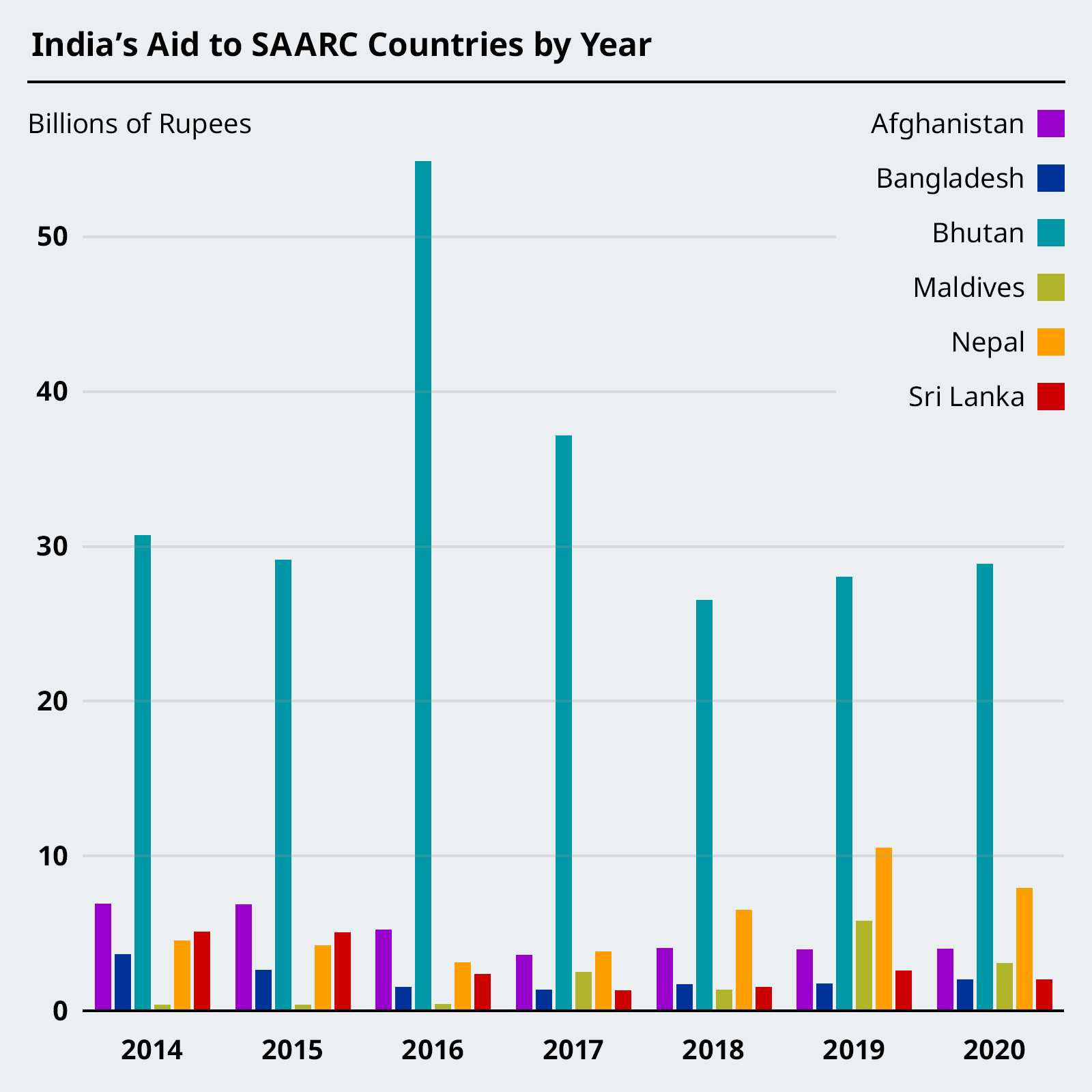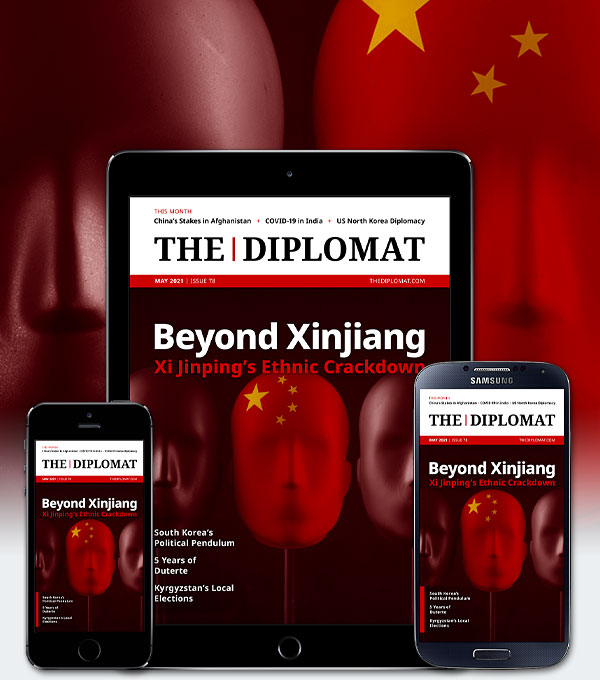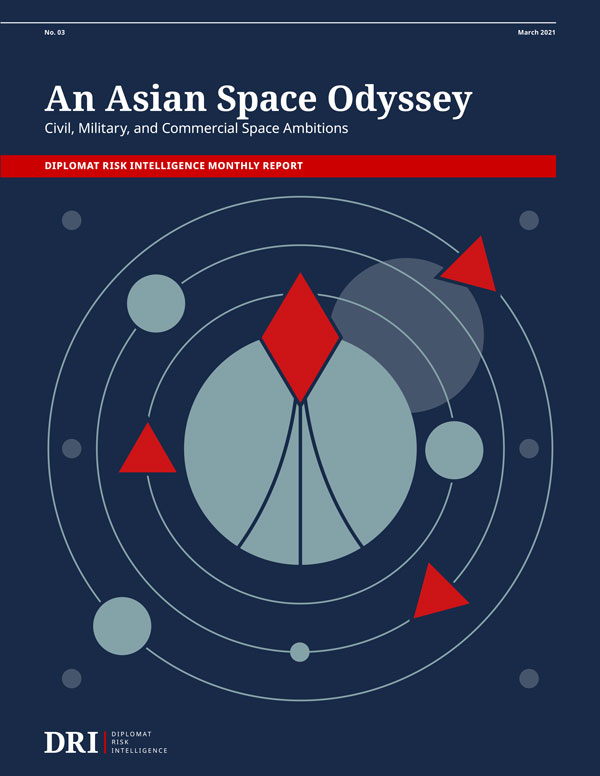| Welcome to the latest issue of Diplomat Brief. This week our top story looks at the election results in the Indian state of West Bengal, with an eye toward India’s political future. We also have an interview with Professor Du Youkang of Fudan University in Shanghai about China’s stakes in the Afghan peace process. |
| Story of the week |  | POLITICS West Bengal Elections: Mamata Banerjee Pushes Modi’s BJP BackWhat Happened: India held state elections in waves over the past month, with West Bengal the most hotly contested. Prime Minister Narendra Modi pulled out all the stops to attempt to wrest control of the state assembly from current Chief Minister Mamata Banerjee, one of Modi’s most outspoken critics. In the end, Banerjee won a resounding re-election – but Modi’s BJP also gained a sizable number of seats. Our Focus: “The impact of the assembly election results will go beyond the concerned states. It will impact politics at the national level,” writes Sudha Ramachandran, a Delhi-based correspondent for The Diplomat. The elections continued the Congress’ downward slide and positioned Banerjee as the main opposition figure to Modi – but perhaps most importantly, it proved that the BJP is not invincible after all. What Comes Next: India isn’t due for another general election until 2024. Until then, the million-dollar question is whether regional parties like Banerjee’s TMC can form a unified opposition with the strength to challenge the BJP. In particular, “whether the tottering Congress will swallow its pride and join an opposition front that is not under its leadership remains to be seen,” Ramachandran notes. Read this story |
| Behind the News | INTERVIEW Du YoukangProfessor Du Youkang, director of the Pakistan Study Center at Fudan University, on Chinese investment in Afghanistan: “The Chinese side has made it clear that it welcomes Afghanistan to ride the ‘high-speed train’ of Chinese development... At the same time, the Chinese government also encourages powerful Chinese companies to invest and start businesses in Afghanistan.” Read the interview |
| This Week in Asia | Northeast Asia China Looks to Reinvigorate the United NationsChina holds the presidency of the U.N. Security Council for May, and is taking the chance to convene a foreign minister-level meeting on the future of the United Nations itself. The meeting, on May 7, will mark the second interaction between China’s Foreign Minister Wang Yi and U.S. Secretary of State Antony Blinken as both sides lay out their visions for the future of the multilateral system. Find out more | South Asia India Continues to Lead COVID-19 Surge in South AsiaIndia’s COVID-19 catastrophe set frightening new records over the last week, and looks to get even worse before it gets better. Meanwhile, India’s South Asian neighbors, from Afghanistan to Pakistan, Bangladesh to Nepal, are scrambling to prevent a similar spike in infections – and avoid the healthcare collapse India is suffering through. Find out more | Southeast Asia Tensions Rise in Indonesia’s Restive Papua RegionTensions are increasing in Papua, in the wake of an April 26 attack in which Papuan separatist rebels ambushed and assassinated Brig. Gen. Gusti Putu Danny Nugraha, the head of Indonesia’s intelligence agency in the eastern province. President Joko Widodo’s government has vowed to avenge the killing, readying for a military crackdown and cutting internet access in the provincial capital Jayapura, moves that are likely to result in further violence. Find out more | Central Asia Deadly Clashes on the Kyrgyz-Tajik BorderWith almost half of the Kyrgyz-Tajik border undemarcated, it’s a constant point of tension. Last week, those tensions erupted into violent conflict, leaving at least 40 people dead. Most of the known casualties are on the Kyrgyz side and there are allegations that Tajikistan’s military attacked civilians. Bishkek and Dushanbe have both pulled back, but future conflict seems likely if they don’t find a way to settle a border question that's vexed the two countries for 30 years. Find out more |
| Word of the Week | Society ала качууAla kachuu, Kyrgyz for “bride kidnapping,” the dark (and sometimes deadly) practice of “kidnapping a girl and forcibly coercing her into marriage.” Find out more |
|  |





